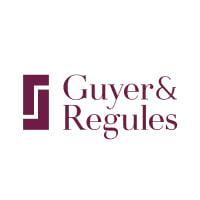

Legal and insurance manager | Teyma Uruguay




Nicolás Horta Aguinaga
Legal and insurance manager | Teyma Uruguay
How do you approach managing legal aspects during periods of instability or crises, and how does your legal strategy align with the broader business strategy to ensure the organisation’s resilience?
During periods of instability or crisis, our approach is based on three key pillars: prevention, agility, and alignment. The legal team acts proactively to identify legal and contractual risks that could escalate in critical contexts – whether financial, operational, or regulatory – through scenario analysis and review of force majeure clauses, compliance obligations, and financial agreements in strategic contracts.
We maintain constant coordination with different areas, mainly finance and operations, to ensure a unified response. This coordination is grounded in an organisational culture of continuous work in multidisciplinary groups, where all professionals have the same level of information. Having quality, complete, and timely information is key to making sound decisions in times of crisis. These groups are led by the company’s management, which ensures strategic alignment and a cohesive response to complex scenarios.
It is essential that the team understands that our advice is aimed at enabling the organisation to carry out its operations with all the appropriate elements and within a controlled risk environment, allowing strategic and operational decisions to be made on solid foundations.
A clear example of this approach was our performance during the company’s restructuring, where we were able to empirically verify the value of the above.
Our legal strategy is fully integrated with the broader goal of business resilience. We focus on ensuring operational continuity, preserving contractual relationships, and minimising litigation exposure, while keeping the company compliant and able to adapt quickly to a constantly evolving regulatory environment.
What are the main cases or transactions that you have been involved in recently?
One of the most significant deals in which the entire legal team I lead was involved was the closure of the structuring of the first extension of a public-private partnership contract in Uruguay. This was notable for two reasons: first, being the first of its kind, it faced the challenge of solving problems that subsequent projects would already have resolved; and second, it marked the company’s return to sponsoring PPP projects after a period of restructuring.
Additionally, the legal team participated almost simultaneously in the structuring of another PPP project, the construction of the Libertad Prison for 1,500 incarcerated individuals, in which the company holds a 40% stake.
From a management perspective, the legal team, together with the commercial and IT departments, also developed an artificial intelligence tool for reviewing client contracts, as part of the company’s global innovation strategy. Notably, the AI model used in our application was developed and trained at the Microsoft AI Co-Innovation Lab.
What do you see as the major legal challenges for businesses in Uruguay over the next five years, and how are you preparing to address them?
One of the main legal challenges will be adapting to the evolution of data protection and privacy regulations. Although Uruguay has a solid legal framework in this area, the increase in global standards and cross-border data flows will require companies to strengthen their compliance programmes and internal controls.
Another relevant development is the extension of regulations regarding the prevention and control of money laundering and the financing of terrorism, which now encompass the entire non-financial sector. This presents an additional challenge for companies, which must implement rigorous measures to comply with these obligations.
A further significant challenge is addressing changes in labour legislation, particularly as remote work continues to transform traditional labour relations. Companies will need to be prepared to respond to regulatory changes related to working hours, employer liability, and digital monitoring practices.
Regarding environmental regulation, the increasing adoption of Extended Producer Responsibility rules is prompting various sectors to adjust and develop waste management plans. This aligns with our company’s trajectory, as we have been actively working on sustainability and environmental management issues for over 22 years.
As legal advisors, we invest in continuous legal education and adopt tools that allow us to anticipate regulatory changes, ensuring that the legal function remains a driver of compliance, innovation, and long-term value creation.
Gerente de legales y de seguros | Teyma Uruguay
Legal and insurance manager | Teyma Uruguay
Legal and insurance manager | Teyma